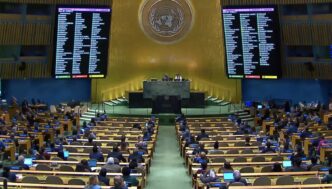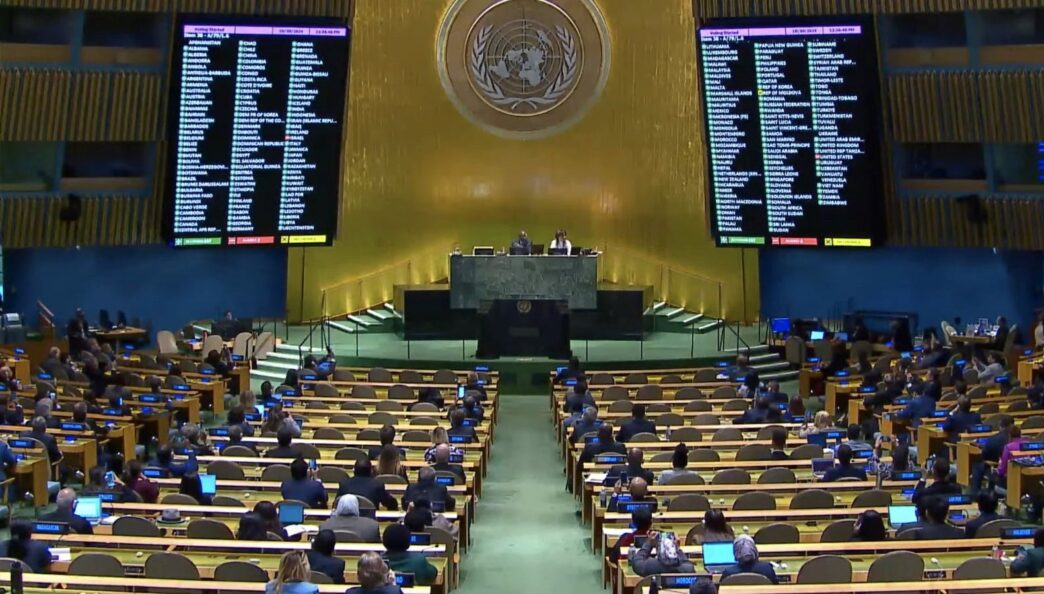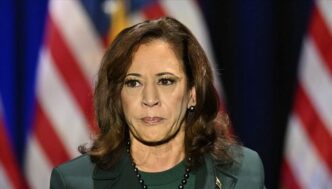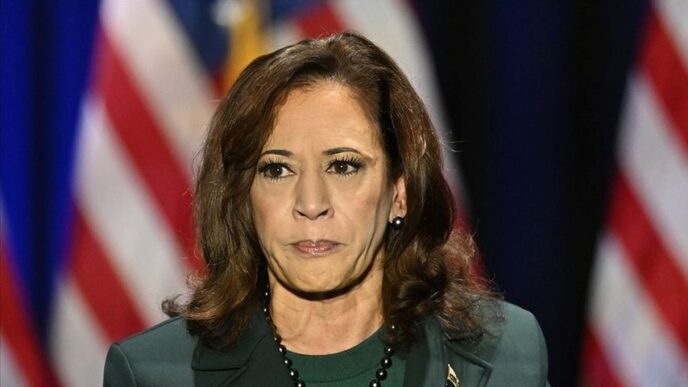The United Nations (UN) General Assembly adopted a resolution demanding that the US end the economic, commercial and financial embargo on Cuba.
A draft resolution demanding that the US end the economic, commercial and financial embargo on Cuba was voted on in the United Nations (UN) General Assembly. 187 countries voted in favor of the resolution, while only the US and Israel were against the resolution. Moldova abstained from the vote. UN HAS APPROVED 32 SIMILAR DRAFTS SO FAR
While the UN General Assembly has adopted similar resolutions on the same subject every year since 1992, the latest resolution has called for the 32nd time for the US to end the embargo it has imposed on Cuba.
The resolution adopted by the UN General Assembly called on states to refrain from implementing coercive and oppressive measures in line with their obligations under the United Nations Charter and international law, which defend freedom of trade and movement.
The adoption of the resolution was welcomed by the Cuban Ministry of Foreign Affairs. The ministry shared the following on social media: “The world says end to the embargo on Cuba.”
Cuba’s UN delegation argued that the embargo, which has been ongoing for more than 60 years, is a policy of great pressure on the island country. The delegation stated that the embargo is a crime against humanity, an act of genocide and a systematic violation of the human rights of more than 11 million Cubans. A report submitted by Cuba noted that the approximate monthly cost of the embargo to Cuba exceeds $421 million, while the daily cost exceeds $13.8 million. BIDEN EXTENDS FOR ANOTHER YEAR
The embargo policy on Cuba, which has been continued by both Democratic and Republican governments in the US, was most recently extended for another year by the US President Joe Biden administration with the decision taken on September 13. The White House issued an official statement stating that continuing the embargo on Cuba for another year is in the national interests of the US. THE EMBARGO HAS BEEN ONGOING SINCE 1960
The embargo, which was partially implemented in response to Cuba’s nationalization of U.S. companies in October 1960 and converted into a full embargo in February 1962, has been routinely extended by 13 U.S. administrations since then, with renewals every year. The embargo, which was eased in 2000 to allow food and humanitarian supplies to be sent to Cuba, continues to significantly impede U.S. companies’ trade with Cuba.













